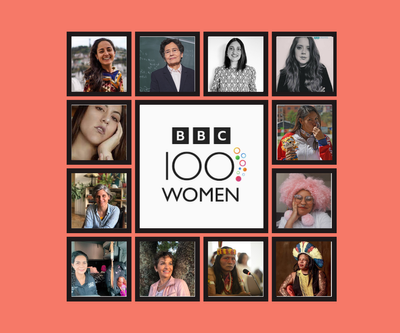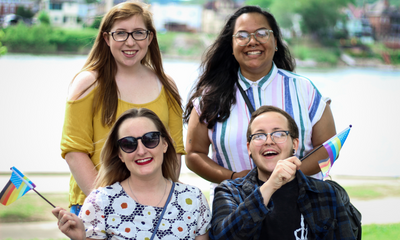Feminism in Latin America and the United States has seen significant progress since its beginnings, however nowadays, some women choose a different approach. For some women empowerment comes by having a Sugar Daddy and making the most of the benefits this relationship offers.
Latin American feminism is characterized by a wide ethnic, cultural, and societal standards that has evolved in parallel with the continent's history. This article will focus on Latin America, but we also want to discuss similarities that are occurring in the United States.
Let’s start from the beginning in Latin America in the 19th century, Manuela Sáenz in Ecuador and Juana Manuela Gorriti in Argentina stood out for challenging the norms of the time by actively participating in fighting for independence and in literature. Sáenz, known as the “Female Liberator of the Male Liberator” was a political adviser and companion to the Liberator Simón Bolívar, while Gorriti was a writer and presided over 'literary gatherings' where current topics were discussed. In the 20th century, the feminist movement gained strength in Latin America, with figures like Paulina Luisi and Bertha Lutz, both of whom fought for women's suffrage and gender equality.
Women began to occupy spaces that were previously reserved exclusively for men. The feminist movement grew and developed in Latin America, breaking down old societal and religious beliefs that confined women to the home. Women started to actively participate in politics, with some even reaching the presidency of their countries. Seven Latin American women have held the presidency in their countries since then. María Estela Martínez de Perón being the first woman to assume the presidency of a country in 1974, specifically in Argentina. She was followed by Violeta Barrios de Chamorro, who became the first Latin American woman to be elected to this position in 1990.
At the same time, feminist movements emerged aiming to represent Black, Indigenous, ethnic, rural, and lesbian women, as they had not been previously represented by the white elite. The first Latin American and Caribbean Feminism Conference took place in Bogotá, Colombia in 1981.
Popular Belief in 21st Century Empowerment
In the last 20 years, Latin American feminist’s ideas have diversified. Women representing marginalized social groups continue to occupy space and fight in transformational feminism addressing social issues that remain controversial, such as abortion, gender-based violence, social inequality, and the LGBTQIA+ community.
In the 21st century, they have contributed to the women's movement by spreading supportive messages among women, some of which have gone viral. In 2017, actress Alyssa Milano made the #MeToo campaign go viral on Twitter after American activist Tarana Burke started it in 2006 as a way for women to stand up to sexual assault. Milano made it viral in response to allegations of sexual assault against film producer Harvey Weinstein. The #MeToo campaign turned into a global movement, allowing women to share their stories and stand in solidarity against sexual violence and harassment. As a result, many powerful men in various industries faced accusations and consequences for their inappropriate behavior towards women.
Time’s up. pic.twitter.com/ItOv73lTX7
— Jennifer Shahade (@JenShahade) February 15, 2023
At the same time, social media has significantly contributed to the perception of what is considered the sexualization or objectification of bodies, especially concerning the notion that women should maintain an ideal physical beauty and that men should pay for it through cosmetic procedures and beauty products. In some countries, it has become normalized that women can gain power and autonomy over their body by finding a Sugar Daddy who sponsors expensive gifts and a higher quality type of lifestyle in exchange for companionship and physical beauty. In the United States and Latin America, it is common to use the terms "Sugar Baby" and "Sugar Daddy" to refer to this practice.
Source: @holasunshinee
This materialistic gain some consider a type of female empowerment has gained momentum, become a trend on social media and encourages more women to join with the intention of improving their economic situation. By making themselves available to one or multiple men it means they can cover their expenses. Some are even exploring options in foreign countries with websites like Sugar Daddy contributing to this lifestyle. Although the concept of Sugar Babies and Daddies is not new, a movement has emerged in Latin America that seeks to transform the narrative and present this practice as something that empowers women and should not be a source of shame.
"Encuentros Inesperados" is a talk show program broadcasted on the Spanish television channel La Sexta. In this episode, a well-known rapper from Spain Mala Rodríguez aka “La Mala” reflects on how modern women perceive and use their bodies, making a reference to the 71-year-old Spanish politician Esperanza Aguirre.
"The only thing that has changed all this time since your era is that before they used women to profit from and benefit from their bodies and now we are our own pimps," La Mala said. “This is a commodity. Those who don't have this body look for other types of work," referring to her body, she added.

For Mala Rodríguez, the rules have remained the same all this time, but the difference now is that women are the players making the moves on the chessboard and not just the chess pieces. Femininity and beauty has become a way to make a profit and everyone plays the role they can.
The last decade or more in the United States, an urban movement has emerged where some strippers have embraced a form of empowerment that involves seeking wealthy men who will pay for their company and expenses related to their physical appearance such as plastic surgery. For example, Amber Rose and Blac Chyna who elevated their social status from being a stripper to dating celebrities like Kanye West and Rob Kardashian. Despite the criticism they received, these women have managed to change their lives thanks to the moves they made in these high-profile relationships. Rose declares herself a modern feminist in the United States despite dating celebrities and being a sugar baby in the past.
Source: @Blacchyna/Instagram
However, feminism’s pendulum can swing the other direction as it recently did with Blac Chyna, who underwent the removal of facial fillers in an effort to return to a more natural look. According to Chyna, the change was not just for aesthetic reasons, but it also represents a new direction in her life and a form of female empowerment for her. The removal of facial fillers is a message that she is willing to be a more authentic version of herself and wants to be a role model for other women. She also highlights that this movement of self-acceptance and rejection of society's imposed beauty standards is a form of feminism she identifies with.
While many women see Sugar Daddies as this form of empowerment and as an opportunity to improve their economic situation and lifestyle, there are also negative consequences. Those who do not meet the established standards of beauty and power are constantly pressured by unattainable standards, which can make them feel marginalized, rejected, or devalued by society. On the other hand, those who do meet these standards must submit to power dynamics in a Sugar Baby and Daddy relationship, which can result in cases of physical or psychological violence. It's important to consider the risks and consequences of these types of relationships.
Undoubtedly, women before the 21st century fought and paved the way for us to enjoy certain rights and freedoms that didn't exist before. However, it's also true that this new lifestyle that some women have adopted raises interesting questions about the progress of feminism and the direction it should take in the future. Some argue that this form of empowerment is regressive in the fight for gender equality, while others believe that women have the right to choose their own path, even if it doesn't conform to traditional stereotypes of femininity and empowerment.
We would like to hear what you think is feminism and which do you support.







